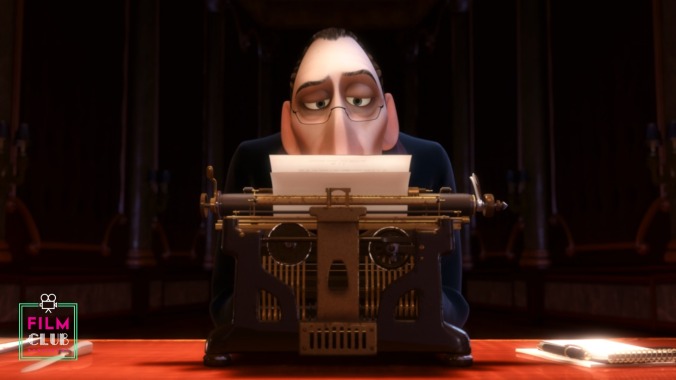On the art (and ethics) of writing negative reviews
Everyone loves a scathing pan. But they're not as simple to write as they seem.

Negative reviews are fun to read—just asks the scores of film fans that have purchased Roger Ebert’s bestselling collection of them, I Hated, Hated, Hated This Movie. Truth is, they can be very fun to write, too, at least for a critic who finds cathartic pleasure in chronicling their own torturous experience with a bad movie, book, meal, etc. But there is an art to penning a pan—and maybe a code of conduct the critic should follow, lest scathing analysis shade into mean-spirited invective. On this week’s very inside-baseball episode of Film Club, critics A.A. Dowd and Katie Rife take the listener behind the curtain of their critical process and discuss how to write about bad movies right.
You can hear the entire conversation in the episode above, or read a lightly edited excerpt down below.
A.A. Dowd: I think it’s totally possible to overlook stuff if something else in the movie is working for you. What it often comes down to is, are you responding to something in the movie, on some level? One reason I probably didn’t give The Lion King (2019) an F—even though I despised it on a pure conceptual level—was that there were elements of it that I did respond to. There were small elements of it. I did like Timon and Pumbaa in the film. And I had to acknowledge that what it was doing was an enormous technical achievement.
When we go into movies and we’re writing about them, the ideal is to look at them and say, “Is there something in this that is interesting? Is there something that I respond to and something that other people might respond to?” When we get into absolutism, I think that becomes a problem in film criticism, because if you have some sort of hard rule about what defines a good movie or a bad movie, you might end up bending your opinion on a movie just to match that standard.
Katie Rife: Right. And that’s why I don’t like it when someone just says, “Well, this movie was bad.” It’s like, “Well, what was bad about it?” You have to support your arguments. Otherwise, that exact thing you described can happen.
A.A. Dowd: You’re exactly right. Back up your complaints about a movie. Be specific about what bothers you about it. And be fair if you can be. I think try to acknowledge what a movie’s doing. I know that there are movies where I didn’t respond to it because I thought what it’s doing wasn’t interesting. But in those cases, I do at least try to say, “Well, how well is it doing what it’s trying to do?” Both those things have their own weight to it. I think that if a movie has no ambition at all, or if its ambition is is offensive, for example, I’m going to acknowledge that. But I also think it’s a good idea for us when we’re looking at movies to to ask what is this thing trying to accomplish artistically, and through that lens, how well does it do it?
Katie Rife: And if you truly can’t tell what they’re trying to accomplish artistically, I think that’s probably a bad sign.
Listen to the podcast above, subscribe on Apple Podcasts, and give us a five-star rating to help other listeners find us. And while you’re there, check out The A.V. Club’s other podcasts, Push The Envelope and Dial M For Maple.